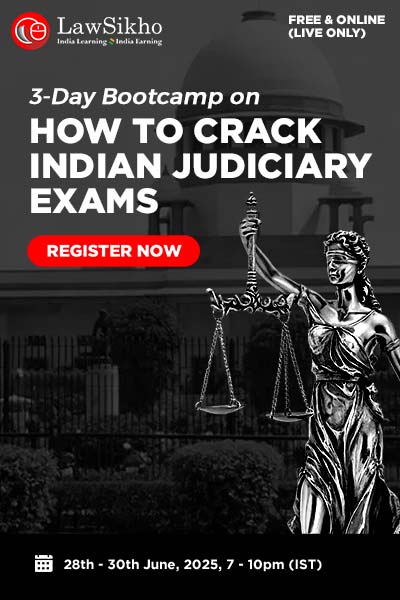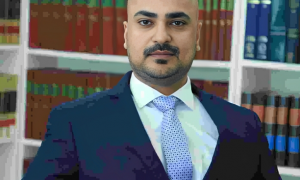This interview has been published by Anshi Mudgal and The SuperLawyer Team

What motivated you to pursue a career in law, and what inspired you to choose the B.P.Sc (Hons.) LLB (Business Law Hons.) program at National Law University, Jodhpur? Looking back at your law school years, what are some key experiences that have had a lasting impact on you?
Growing up, I admired my father, a police personnel, whose commitment to justice and integrity deeply influenced me. Watching him serve the people with courage and dedication inspired me to pursue a career in law. Additionally, I was fascinated by courtroom dramas and legal stories portrayed in movies, which sparked my curiosity about the legal system and advocacy.
I chose the B.P.Sc (Hons.) LLB (Business Law Hons.) program at National Law University, Jodhpur, because I was deeply interested in subjects like Political Science, Sociology, and Psychology. Their focus on understanding human behavior, societal dynamics, and governance aligned perfectly with my passion for law and justice. This interdisciplinary approach not only matched my interests but also provided a strong foundation for pursuing a career in law. During my law school years, participating in moot courts, insightful internships, and collaborating on research projects helped me develop strong analytical and advocacy skills. These experiences, combined with my early inspirations, shaped my approach to solving complex legal challenges.
How did your early experiences at A&A Law Office, particularly in corporate and project finance, contribute to shaping your understanding of joint ventures, regulatory frameworks, and due diligence in commercial transactions?
My early experiences at A&A Law Office played a crucial role in shaping my understanding of joint ventures, regulatory frameworks, due diligence, and intellectual property in commercial transactions. As it was a small law firm, I was involved in a wide range of legal work, from corporate and project finance to intellectual property matters. This exposure taught me how to assess risks, navigate complex regulatory requirements, and ensure IP protection. These experiences provided a solid foundation for strategic legal advisory and commercial law dynamics.
How has your expertise in intellectual property law influenced your corporate advisory work, particularly when handling trademarks, copyrights, and design matters? What are your thoughts on the future evolution of intellectual property rights in the coming years?
My expertise in intellectual property law has significantly influenced my corporate advisory work, especially when handling trademarks, copyrights, and design matters. It enables me to provide strategic guidance on brand protection, licensing, and enforcement, ensuring clients’ intellectual assets are safeguarded while maximizing commercial value. This knowledge also enhances contract drafting, due diligence, and risk assessment in corporate transactions.
Additionally, being a member of some of the world’s most prestigious organizations, such as the International Trademark Association (INTA), International Association for the Protection of Intellectual Property (AIPPI), Asian Patent Attorneys Association (APAA), and World Intellectual Property Forum (WIPF), has significantly contributed to my professional growth. These memberships have provided valuable opportunities to engage with global legal experts, stay updated on international IP trends, and expand my professional network. They have also enhanced my strategic insights and knowledge, enabling me to offer well-rounded and globally relevant legal advice.
Looking ahead, I believe the rapid growth of digital commerce and emerging technologies like AI and blockchain will redefine IP rights. This evolution will demand adaptive legal strategies, international collaboration, and enhanced regulatory frameworks to address complex cross-border IP issues.
Drawing from your experience in the real estate sector, what were some of the most difficult aspects of drafting and negotiating construction contracts and joint development agreements?
Drawing from my experience in the real estate sector, some of the most challenging aspects of drafting and negotiating construction contracts and joint development agreements involved navigating complex regulatory compliance, risk allocation, and aligning the interests of multiple stakeholders. Ensuring clear terms on project timelines, payment structures, and liability clauses required meticulous attention to detail. Additionally, balancing legal safeguards with commercial feasibility while managing client expectations demanded strategic negotiation skills and effective communication. These challenges enhanced my problem-solving abilities and contract management expertise.
Could you describe one of the most challenging cases you’ve handled so far and share your approach to navigating the complexities involved in that case?
One of the most challenging cases I handled involved complex intellectual property litigation with cross-border implications. It required navigating conflicting jurisdictional laws and strategic enforcement of trademark rights. To manage this, I conducted in-depth legal research, collaborated with international counsel, and crafted adaptive litigation strategies to protect client interests. I focused on proactive risk management and effective communication to resolve disputes efficiently. This experience reinforced the importance of strategic foresight, agility, and resilience in high-stakes legal matters.
What are some of the major challenges that businesses in the real estate sector are facing today? Additionally, how has the role of arbitration and other alternative dispute resolution (ADR) mechanisms evolved in this sector?
Businesses in the real estate sector today face challenges like regulatory complexities, fluctuating market dynamics, land acquisition disputes, and financing constraints. Navigating compliance with environmental laws and urban development regulations also adds to the complexity.
Arbitration and other Alternative Dispute Resolution (ADR) mechanisms have become increasingly popular in this sector due to their cost-effectiveness and faster resolution compared to traditional litigation. ADR provides flexibility, confidentiality, and specialized expertise, making it a preferred choice for resolving real estate disputes efficiently.
As someone who has played a pivotal role in high-stakes cases as both a Partner and Counsel, what do you think is the most crucial skill that law students should focus on developing to succeed in the legal field? Also, are there any resources you would recommend to help them stay updated on legal trends and developments?
The most crucial skill for law students is strategic legal analysis combined with effective communication. They should also develop negotiation skills, adaptability to emerging technologies, and resilience in high-pressure situations. Writing articles, case notes, and thought leadership pieces not only sharpens analytical abilities but also enhances visibility in the legal community.
I have authored over 20 publications in reputed journals, which has significantly contributed to my understanding of complex legal issues and trends. To stay updated on legal trends, I recommend using LinkedIn for networking and industry insights. Resources like CiteCase, Bar and Bench, Live Law, Manupatra, and College Law Review Journals provide comprehensive legal updates, case analyses, and emerging legal issues. Engaging with these platforms helps build a strong foundation and keeps one informed about the latest legal developments.
Given the demanding nature of your professional commitments, how do you manage to strike a balance between your work responsibilities and personal life?
Balancing professional commitments with personal life is achievable through strategic time management and leveraging technology. I have automated my legal processes and maintain a paperless office, enabling me to work efficiently from anywhere as a mobile lawyer. This flexibility allows me to manage tasks on the go while staying organized and responsive. By embracing digital tools and maintaining a disciplined schedule, I maximize productivity while also ensuring time for personal well-being and family, achieving a harmonious work-life balance.
Could you kindly share the insights and experiences you’ve gained throughout your entrepreneurial journey?
In addition to my legal career, I have always been passionate about entrepreneurship. I founded InCourt News in 2015, which gained recognition as one of the best mobile applications to have, featured in various magazines for its innovative approach to legal news delivery, and was later acquired by a legal marketplace. I also ventured into the skilling sector with “Skill Funds,” founding startups aligned with the Skill India Mission, aimed at empowering youth with industry-relevant skills. These experiences have enriched my leadership abilities, strategic vision, and problem-solving skills, complementing my legal expertise with an entrepreneurial mindset. Currently, I am running my law firm, Lex Praxis, leveraging my diverse experiences to provide strategic legal solutions.
Get in touch with M Abhijnan Jha –


























